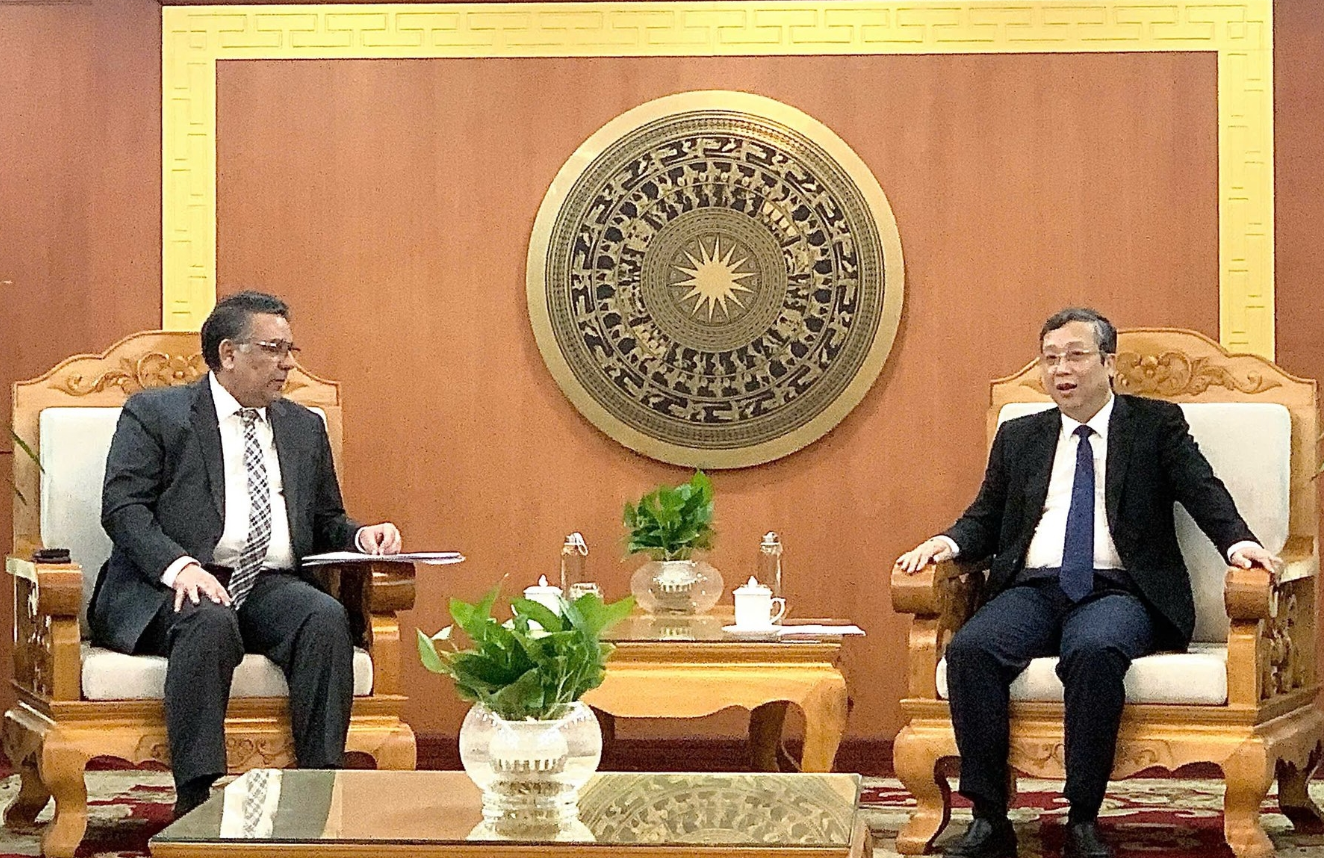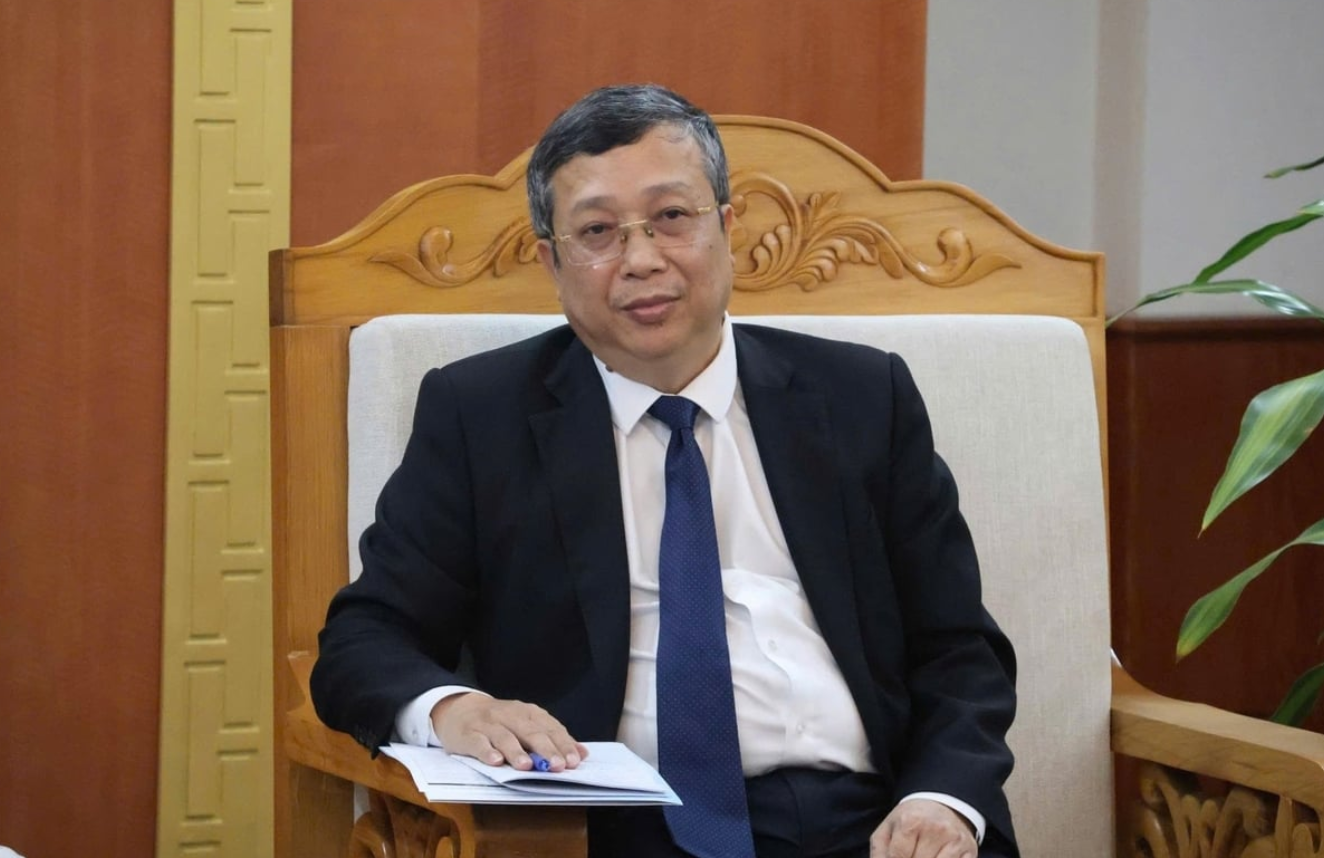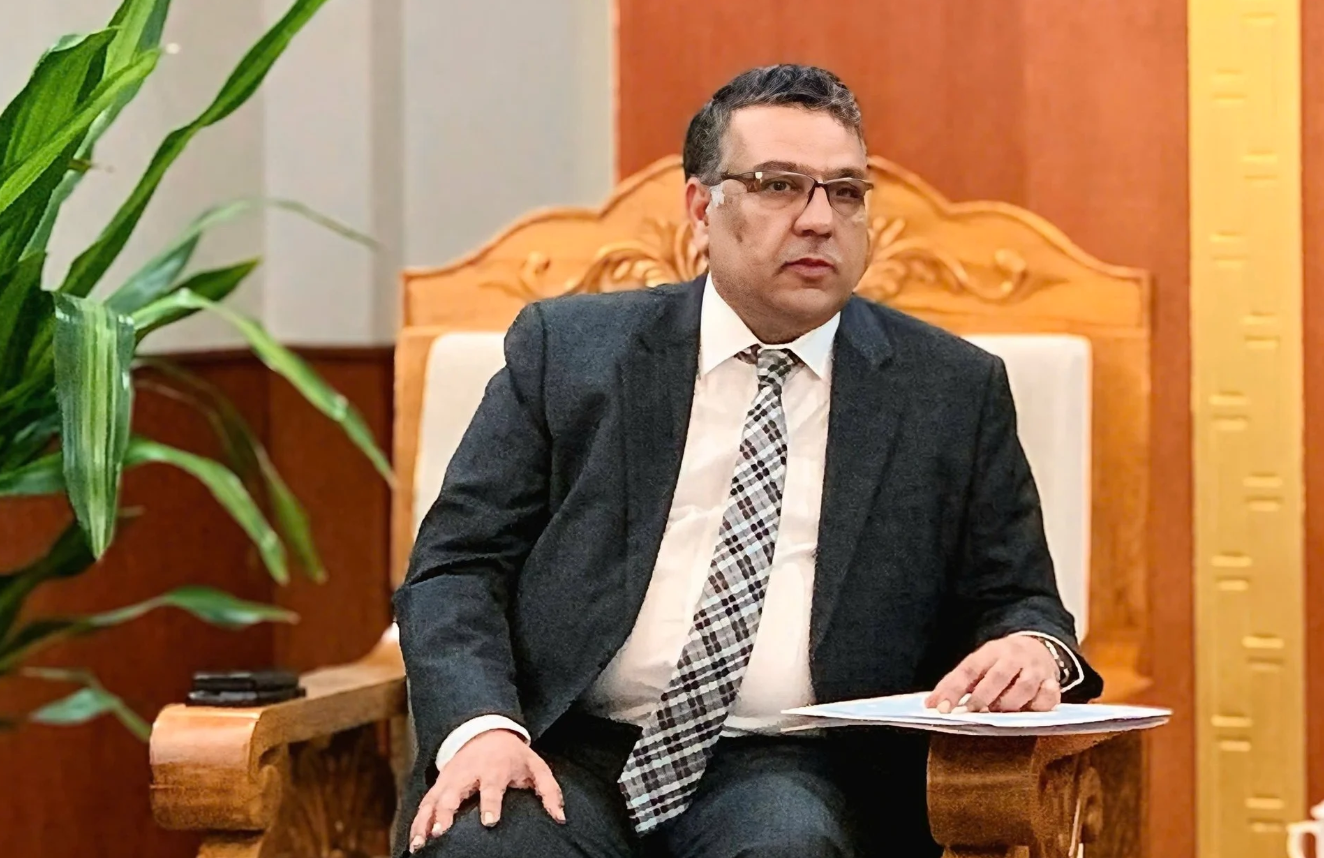Vietnam and Pakistan are working to unlock the full potential of their agricultural trade relationship by prioritizing cooperation and market access.
 Deputy Minister Hoang Trung (right) exchanges views with Deputy Minister of Pakistan's Ministry of Commerce Nasir Hamid (left), emphasizing the potential for agricultural trade cooperation between Vietnam and Pakistan. Photo: Hong Ngoc.
Deputy Minister Hoang Trung (right) exchanges views with Deputy Minister of Pakistan's Ministry of Commerce Nasir Hamid (left), emphasizing the potential for agricultural trade cooperation between Vietnam and Pakistan. Photo: Hong Ngoc.A new focus on Halal-certified products is expected to pave the way for a wider range of Vietnamese goods to enter the Pakistani market, following a high-level meeting between officials from both nations.
On the morning of July 10, Deputy Minister Hoang Trung of Vietnam's Ministry of Agriculture and Environment (MOAE) met with a delegation from Pakistan's Ministry of Commerce, led by Deputy Minister Nasir Hamid. This marks the first bilateral visit in agricultural trade, signaling a significant new phase in relations between the two countries.
 Deputy Minister of Agriculture and Environment Hoang Trung discusses quarantine and food safety procedures and the status of export dossiers for onions and potatoes to Vietnam with the Deputy Minister of Pakistan's Ministry of Commerce. Photo: Hong Ngoc.
Deputy Minister of Agriculture and Environment Hoang Trung discusses quarantine and food safety procedures and the status of export dossiers for onions and potatoes to Vietnam with the Deputy Minister of Pakistan's Ministry of Commerce. Photo: Hong Ngoc.Deputy Minister Hoang Trung noted that the current trade value in agriculture, forestry, and fishery (AFF) between the two nations remains modest compared to its potential, reaching only about USD 178 million in 2024. Despite periods of growth, trade cooperation has been unstable and has yet to fully realize its existing advantages.
Vietnam possesses a wide range of Halal-certified products, including tea, pepper, seafood, and processed fruits, which are well-suited to the import needs of Pakista, the world's third-largest tea consumer. Both sides agreed on the need to advance technical cooperation, mutually recognize Halal certifications, and streamline trade flows for agricultural products.
During the meeting, the Pakistani delegation expressed a strong desire to fast-track the export application process for its animal products, such as beef, poultry, and seafood, as well as plant products like onions, potatoes, mangoes, and citrus fruits, into the Vietnamese market. Deputy Minister Hamid urged Vietnamese authorities to actively inspect, guide, and create more favorable conditions for Pakistani exporters.
 Deputy Minister of Pakistan's Ministry of Commerce Nasir Hamid emphasizes cooperation on investment, deep processing, and the development of agricultural value chains between the two countries. Photo: Hong Ngoc.
Deputy Minister of Pakistan's Ministry of Commerce Nasir Hamid emphasizes cooperation on investment, deep processing, and the development of agricultural value chains between the two countries. Photo: Hong Ngoc.In response, Deputy Minister Hoang Trung confirmed that relevant Vietnamese agencies are working closely with their Pakistani counterparts, strictly adhering to regulations on quarantine, food safety, and plant protection. He noted that Pakistan was approved to export onions to Vietnam in June 2025, with a decision on potatoes expected in July 2025. Other products like mangoes and citrus are still under review. He also advised that for animal products, Pakistan needs to provide more comprehensive technical information to expedite the approval process.
Both officials agreed to assign specific focal points within their respective ministries to improve coordination on applications and ensure a transparent and timely exchange of technical information in line with international standards.
Looking ahead, the two nations also committed to boosting investment in deep processing and value-added product development, aiming to serve not only their domestic markets but also to target export opportunities in South Asia, Central Asia, and the Middle East. Vietnam welcomes joint ventures and partnerships between Pakistani and Vietnamese companies, particularly in key sectors like tea, seafood, pepper, and Halal-certified products.
Vietnam also acknowledged Pakistan's research capabilities, especially in developing drought-resistant crops. Both sides pledged to increase expert exchanges, collaborate on crop and livestock research, and provide training for agricultural professionals.
Notably, both ministries agreed to initiate negotiations for a new cooperation agreement to replace the one that expired in 2011. This new agreement will create a solid legal foundation to elevate agricultural and environmental cooperation to a new level.